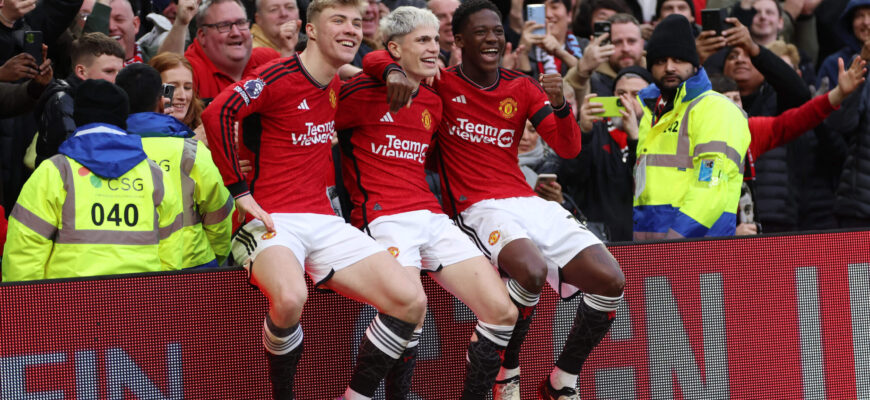In the hallowed halls of Old Trafford, a narrative has begun to unfold with an almost unsettling predictability: the early season `crisis.` For Manchester United, a club steeped in glorious history, the question is no longer if turbulence will arrive, but rather when it will announce itself with another flurry of disappointing results. Just five games into the new campaign, and the air around the Theatre of Dreams is already thick with the scent of existential dread and the murmurs of managerial uncertainty.
The Anatomy of a Familiar Foe: Crisis Revisited
This isn`t merely about losing a football match; it`s about the erosion of confidence, the relentless questioning of tactical blueprints, and the collective anxiety that grips a fanbase accustomed to dominance. While even rivals like Chelsea might experience a wobble, United`s struggles feel more profound, more systemic. A recent shock elimination from the EFL Cup by Grimsby Town might, for most clubs, be a minor blip, but for United, it registers as a glaring symptom of deeper malaise. The uninspiring 3-0 thrashing in the Manchester derby, where the defense resembled a collection of strangers rather than a cohesive unit, merely served to highlight what many already feared: instability is not just a passing phase, it’s a foundational issue. The new goalkeeper, Altay Bayindir, has found himself swiftly baptized into the unforgiving world of a club perpetually under the microscope, his early performances mirroring the team`s wider disarray.
The Managerial Hot Seat and Tactical Traps
At the heart of this unfolding drama is Ruben Amorim, a figure once heralded as one of the game`s brightest tactical minds. Yet, his tenure at United, as chronicled by observers, appears to be a harsh lesson in the chasm between potential and performance. The burden of transforming a club that has meandered through years of strategic missteps is indeed monumental, and a quick return to glory is a fantasy. However, the emerging patterns under Amorim raise legitimate concerns. His unwavering commitment to a back three, regardless of the opposition or in-game scenario, has often felt less like a strategic conviction and more like tactical inflexibility. Critics, emboldened by a growing stack of adverse results, point to in-game management decisions that appear to compound rather than alleviate pressure.
One need only recall the Manchester City fixture. Trailing by two goals with ample time remaining, the anticipated shift to a more aggressive stance failed to materialize. Instead, substitutions like Harry Maguire entering the fray, ostensibly as a “goal threat” from set pieces, painted a rather stark picture of desperation. It`s a scenario that, for an objective observer, oscillates between tragic and darkly comedic – a defender, however capable, being singularly relied upon for offensive salvation, signaling a profound lack of attacking invention. This illustrates not just the immediate problems, but a deeper malaise concerning the manager`s vision and adaptability.
The Unfulfilled Promise of New Blood
The summer transfer window, often a beacon of hope, brought a fresh influx of talent in Benjamin Sesko, Matheus Cunha, and Bryan Mbeumo. These arrivals were meant to be the catalysts, the players who would finally align with Amorim`s philosophy and ignite United`s attack. Yet, the anticipated “high gear” remains stubbornly out of reach. Their integration, or lack thereof, into a cohesive and potent offensive unit serves as another indictment of the broader strategic framework. If the new blood cannot elevate the team beyond last season`s inconsistencies, and if the managerial approach remains rigid, then the prognosis for another long, arduous season at Old Trafford appears grim.
Conclusion: The Relentless Search for an Identity
The saga of Manchester United`s early-season struggles is a recurring motif in modern football. It`s a story of a titan grappling with its own immense legacy, caught in a cycle of high expectations, tactical puzzles, and the relentless pressure to deliver. For Ruben Amorim, as for those who came before him, the challenge is not merely to win matches, but to redefine an identity, to instill a coherent philosophy, and to break a pattern that has become all too familiar. Old Trafford, it seems, is still searching for its definitive answer to the question of crisis, or perhaps, learning to live with its persistent echo.








